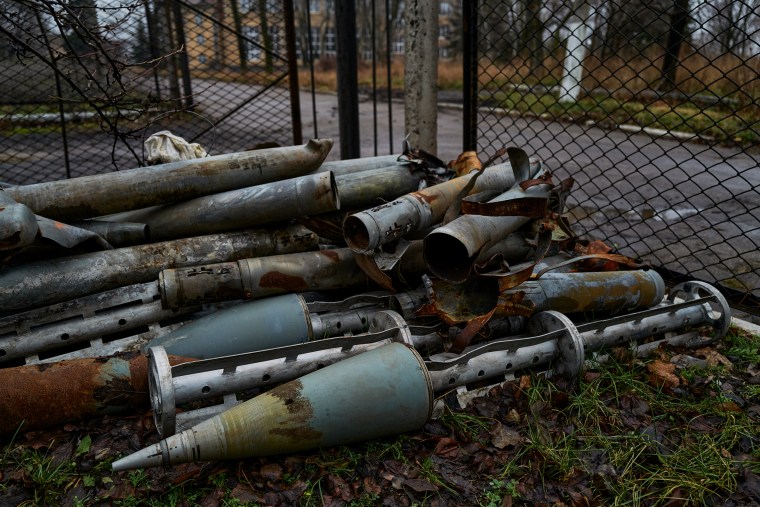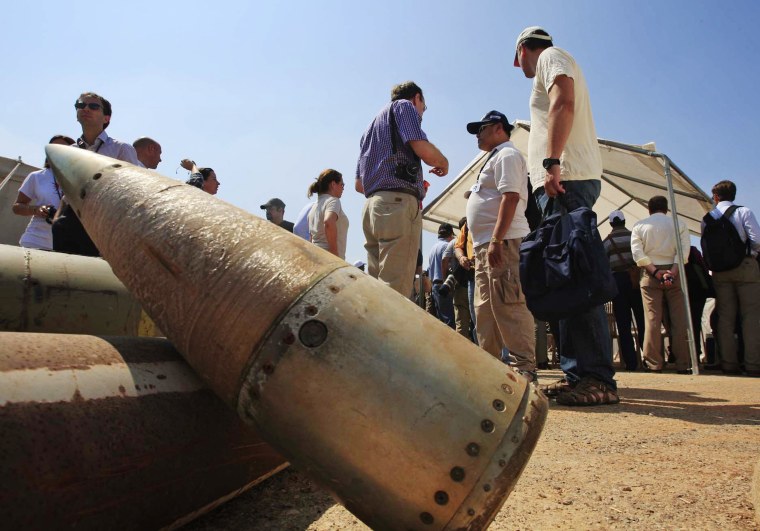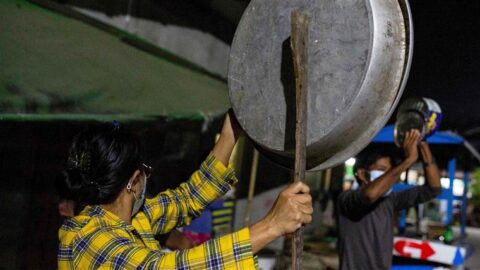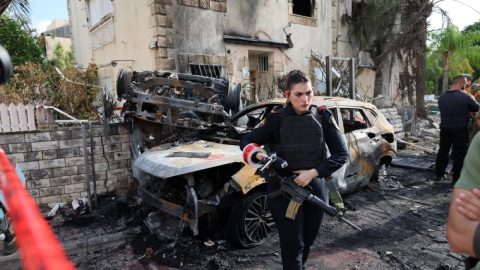The U.S. will provide cluster munitions to Ukraine to boost its military in the fight against Russia, the Pentagon announced Friday, despite concerns from human rights groups and some U.S. allies that their use will lead to more civilian casualties.
President Joe Biden signed a presidential waiver on the transfer of the weapons in recent days, two officials said.
The dual-purpose improved conventional munitions, or DPICMs, are surface-to-surface warheads that explode and disperse multiple small munitions or bombs over wide areas — bringing more widespread destruction than single rounds. The rounds can be charges that penetrate armored vehicles, or they can shatter or fragment to be more dangerous for people.
Some human rights groups oppose their use because of concerns that unexploded bomblets, or duds, could explode after battle, potentially injuring or killing innocent civilians.
But White House national security adviser Jake Sullivan said the munitions were critical for Ukraine to sustain its military operations against the Russian invaders.
“We will not leave Ukraine defenseless at any point in this conflict, period,” he said.
Sullivan noted that the U.S. cluster munitions have a much lower dud rate than those used by the Russians, and Ukraine has provided assurances that it will use the weapons in a careful way aimed at minimizing risks to civilians.
“It’s their citizens, it’s Ukrainians, who they are trying to protect and defend,” Sullivan added. “This is not Ukraine taking these and going and using them in the Middle East or in southeast Asia or in some far away land. Their using them on their territory to defend their territory.”

Colin Kahl, the undersecretary of defense for policy, said Ukraine has promised to record where it uses the rounds, not to fire them in civilian and urban areas, and to launch demining operations after the war.
At an unrelated White House event, Biden gave a brief answer when asked why he agreed to send the weapons to Ukraine now.
“They’re running out of ammunition,” he said.
Ukraine has been asking the U.S. for DPICMs since last year, but the idea was met with resistance because of an international treaty that bans the transfer, use and stockpiling of the weapon.
The U.S., Ukraine and Russia are not signatories to the treaty, called the Convention on Cluster Munitions, but U.S. law requires the president to sign a waiver before exporting cluster munitions with more than a 1% dud rate. The DPICMs the U.S. would provide have a dud rate of 1.3% to 2.35%.
The U.S. has a stockpile of roughly 10,000 cluster munitions in Europe that could be shipped to Ukraine almost immediately, the officials said.
NBC News reported last week that the Biden administration was leaning toward providing the weapons to Ukraine.
The U.S. developed the cluster munitions during the Cold War and later stockpiled a large number of them, many now nearing the end of their shelf life. Last week, a bipartisan group of members of Congress sent a letter asking the Biden administration to unleash the “untapped, vast arsenal” to Ukraine.

DPICMs can be fired from artillery systems that the U.S. has already provided to Ukraine.
Worldwide, civilians represented 97% of all cluster munition casualties, according to a report in August by the Landmine and Cluster Munition Monitor, a campaign group that works to eradicate their use. Children accounted for 66% of all casualties where the age group was known, the report said.
Their use by both sides has been documented during the war in Ukraine, according to Human Rights Watch, an international nongovernmental organization. It is unknown how many people the munitions have killed or how large an area might have been affected, but Ukrainian Prime Minister Denys Shmyhal said in April that more than 67,000 square miles of the country had been blighted by unexploded ordnance.








Recent Comments